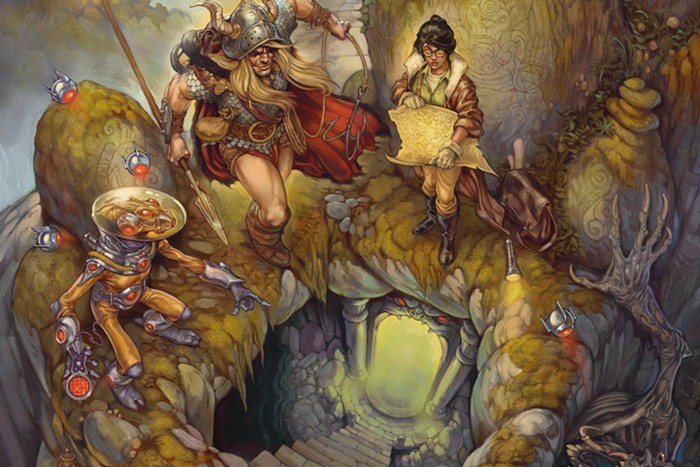There is no doubt in my mind that major shit is going to go down at the onset of the apocalypse. But Peter Heller's new postapocalyptic novel The Dog Stars (Knopf, $24.95) is devoid of big-ass nuclear explosions, riots, aliens, and police states. Instead, it builds an entire narrative on the bald fears of isolation and loss—which is, in my mind, what makes the End of the World so truly freaking scary. After the wars, sickness, etc. puts down "ninety-nine point whatever" percent of the population, the book's protagonist—a fortysomething everydude (poet edition)—quietly tells his story of survival in a choppy straight-from-the-id series of events, from fishing trips to shoot-outs, over a few remaining cases of Coke in an abandoned 18-wheeler.
It's 2012 and there's no dearth of postapocalyptic fiction, and that's fine with me; I totally dig this shit. I even read all of the Left Behind novels just to see what God decided to do with the Jews. Most books in this genre are enjoyable, but there's not a lot going on after the ashes grow cold. What separates Heller's book from other End of Days stories is that it doesn't rely on the thematic fail-safes to tell the story—The Dog Stars is quite simply the story of what it's like to be alone. What it feels like to not know more than one or two other people for a decade. What it's like to love those people while fearing them, all the time knowing that survival sometimes means you have to shoot first. What it's like to watch a man open a can of pop, while "at the crack of the top he winces like one more Coke down, one more less in the world."
Cormac McCarthy's The Road concentrates on sadness resulting from the apocalypse rather than the events leading up to it, but it's not as personal of a book. The Dog Stars is less like observing someone else's tragedy and more like having a quiet conversation with myself while walking, working, cooking, picking a scab—these small whisperings about events big and banal go on all the time. This is what makes Heller's protagonist so painfully recognizable. In his day-to-day efforts to survive, to decide why he's trying to survive, Heller's post-world loneliness takes shape as a single, pointed monologue that's scarily easy to identify with. There's no grand finale, no certain death to put an end to the misery. It just is. ![]()


















